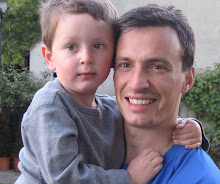My second day at Broadway Centre felt very different from the first. By now, I felt like a veteran of the system. I generously helped to give guidance to volunteer virgins who looked as disorientated as I did on my first day. The absence of public transport meant that I had cycled for an hour in quiet London streets to arrive at Shepherds Bush and the exercise had put a spring in my step.
It struck me throughout the day that the Crisis centres are set up at Christmas as much to benefit the volunteers as they are for the guests. Everyone of the 40 volunteers had their own reasons for being there. One volunteer from Sunderland told me that she had lost her husband six months ago. Another volunteer was there to escape the spectre of another family Christmas. For me, the main driver was to find an antidote to the self-pity that threatened set in because I couldn’t spend Christmas with my own family.
From that perspective, the guests are very gracious. They sense the vulnerability of the volunteers who want to engage.
After I finished my morning security shift, I got a cup of tea and sat down in the café. I started chatting with Noel – an Irish guest who must have been in his late 60s and had spent 15 years sleeping rough in some of the toughest areas of London and Birmingham. He hadn't seen his wife and children for 25 years but he said he would never stop loving his wife, as long as he lived. His face and hands were badly scarred from what look like severe burns. Although he wore dark glasses, his piercing blue eyes would look at you over the top of his frames when he wanted to be sure you were listening.
I made the mistake of straying onto the issues of politics with Noel. In no time at all, Noel was expressing his apoplectic anger at the sight of Polish and other immigrants who were diluting British culture and using services that they had never contributed to. The issues he raised were a common theme that emerged from guests who felt the help on offer was not reaching the people who really needed it. The tension between the Eastern European guests – many of whom were much younger– and the ‘local’ guests was palpable.
I decided to chance my arm at connecting with some of the Polish guests. It was much tougher. Many could barely speak English. They could play table tennis however. I confidently challenged one guest to a game. Unfortunately, I lost pretty quickly to a Pole who I can only assume must have been a table tennis champion in his home town!
The day finished with an uplifting debrief where we heard Edwin’s story – a volunteer who had almost died on the streets but who had literally been saved by visiting a Crisis Centre. He now gone 14 years without a drink and there was no more powerful advocate for the value of the work Crisis does.
Saturday, December 27, 2008
Subscribe to:
Post Comments (Atom)




No comments:
Post a Comment